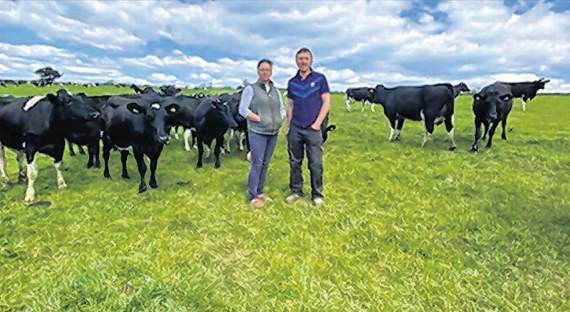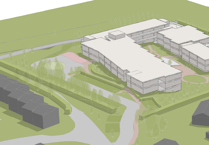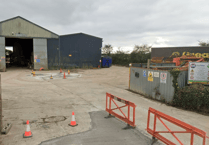A COUPLE who run a dairy farm are producing more than milk and grass – they are making fuel from their slurry pit to run Cornwall Council vehicles.
Katie and Kevin Hoare run Cornwall Council’s 134-acre Trenance Farm in Tideford. The couple, both from farming families, took over the farm in 2018 and have a herd of over 100 cows.
Katie said: ‘The farm was tired when we took it over and we needed a decent slurry store which is when we became aware of the benefits of having a biomethane slurry lagoon which captures fugitive methane from slurry and converts it into compressed gas to use as fuel.’
Biomethane is a naturally occurring gas that is produced when organic matter breaks down. It is a harmful greenhouse gas that contributes towards global warming. By capturing it from the material before it is emitted to the atmosphere, it can be used as an affordable, versatile renewable zero carbon, or in the case of manure, better than zero carbon.
Katie added: ‘We are environmentally conscious and fell in with Cornwall-based clean energy company, Bennamann who developed the concept and was looking for pilot sites. We needed a slurry pit and they needed a methane capturing unit so it grew from there – we are the first of six pilot sites in Cornwall.
‘It was a long process and took a couple of years in the making evolving along the way. Kevin did a lot of the structural work on the pit and Bennamann did the rest.
‘We scrape the yard after the cows have been milked, put the slurry in a reception tank before it goes through a macerator on its way to the slurry lagoon which has a roof and insulation around the sides to keep it warm to allow the bacteria to develop and produce the gas. The toxic gases are extracted and the clean gas is put back into the pit and turned into compressed methane to fuel the vehicles.’
As part of the project, the couple have been offered to trial a New Holland tractor which is the first of its kind to run on methane. In the meantime Cormac is planning to buy a fleet of road maintenance trucks which will run on the methane.
Katie added: ‘Slurry pits and methane have been the bane of farmers’ lives but now we have turned it to our advantage. The process has also improved the quality of our slurry – it should be like rocket fuel on our soil. It has been a lot of blood, sweat and tears but worth it.’




